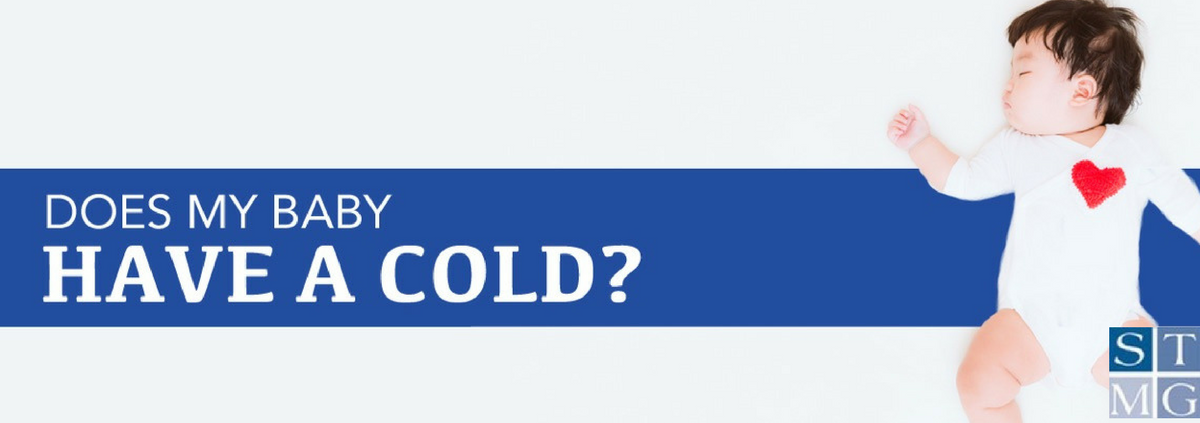Does My Baby Have a Cold? 7 of the Most Common Signs
First words. First steps. First cold.
Of all the exciting milestones for your baby, the first cold is probably furthest from your mind. Babies start building their immune systems the moment they are born, but it takes time to develop full protection. During this vulnerable time, they can have up to 10 colds each year, more if they attend daycare or other crowded, public environments. Compare this to an average of four annual colds for most adults!
During winter weather, more time is spent indoors where viruses can live on surfaces for hours. Children experience the world by touching things and inevitably those hands make it into their mouths.
With that in mind, the best thing to do when you think your baby is coming down with a cold is to follow the guidance of your baby’s pediatrician. Please contact St. Thomas Medical Group pediatricians at +1 (615) 301-7040.
Symptoms of Colds in Babies
Apart from the common cold symptoms like fever, runny nose, cough, and congestion, younger children and babies may display a variety of other signs. Here are 7 common signs your child may be coming down with an upper respiratory infection.
- Refusal to nurse or take a bottle. Infants and older children tend to have decreased appetite when they are coming down with a cold. If your child suddenly has less interest in breastfeeding or formula, he or she should be evaluated by a pediatrician to help determine if there is a cold developing.
- Listlessness. Babies are naturally active and curious. When your child becomes less interested in the environment or people around them, the sudden change in energy level may be indicative of an infection like a cold. It’s always important to seek pediatric care if you have any concerns.
- Irritability. Excessive fussiness, crying and tantrums may be a sign that your baby is not feeling well. Because babies can’t talk, crying is a baby’s primary way of communicating. Over time, parents learn to decipher the baby’s cries and what they mean, but if your baby is irritable and cries longer than usual, it might be a sign that your baby is ill or in pain.
- Fewer wet diapers. Colds and illness can cause dehydration through fever, sweating, vomiting, or diarrhea. Less frequent need for diaper changes could indicate developing dehydration. Babies can quickly become dangerously dehydrated, so this should be communicated to your child’s pediatrician immediately.
- Difficulty sleeping. We all know how hard it is to get good rest with a cold. A stuffy head, runny nose, and cough can keep you awake. It is no different for your baby. Changes in sleep routine can have many causes, but cold viruses top the list.
- Pale or rosy cheeks. This type of change to your baby’s complexion may be a sign that they are becoming ill. Aside from pale or rosy cheeks, keep an eye on your baby’s skin or lips. If they turn blue or purple, then call the pediatrician immediately.
- Swollen or sunken soft spot. Your baby’s soft spot, or fontanelle, can change depending on illness and hydration status. Both ends of the spectrum, excessive pressure or decreased fullness, can represent a medical emergency and should be evaluated by a pediatrician immediately. In Nashville, the doctors at St. Thomas Medical Group are the best pediatricians to help care for your baby.
Ambiguous Symptoms
Sometimes what may seem like a clear sign of a cold can be allergies, indigestion or another benign condition.
- Nasal irritation can come from an infection like a cold, but can also be triggered by allergies or dry winter air.
- Vomiting and diarrhea. While many infants have some gastrointestinal upset related to colds, these symptoms are more commonly associated with other conditions.
- Red eyes can accompany other cold symptoms but may also be from allergies or bacterial conjunctivitis (aka pink eye) and would be treated differently in this case.
Nothing to Sneeze At
It is important to keep in mind that most illnesses, including colds, can be higher risk for children compared to adults. In addition, many of the medications used to manage cold symptoms in adults are not safe for young children.
If you have any question about your baby’s health, please do not hesitate to contact the excellent pediatricians at St. Thomas Medical Group. You can schedule an appointment with our Nashville pediatricians by calling +1 (615) 301-7040.




